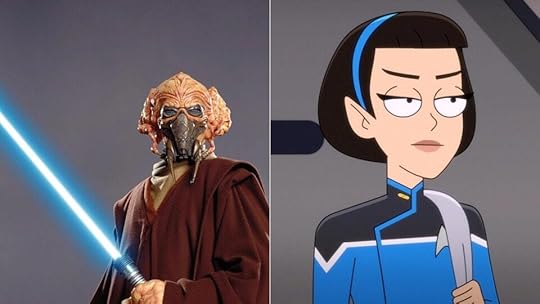date newest »
newest »
 newest »
newest »
message 1:
by
Matthew
(new)
Oct 11, 2023 06:50AM
 maybe I'm just looking in the wrong places but there seems to be a mentality, especially among the younger generation, that the only sensible thing to do is to give up on ever achieving a better world and to find stuff to laugh at as it all burns down around us.
maybe I'm just looking in the wrong places but there seems to be a mentality, especially among the younger generation, that the only sensible thing to do is to give up on ever achieving a better world and to find stuff to laugh at as it all burns down around us.
reply
|
flag

 Jedi Master Plo Koon and T'Lyn, a Vulcan character on Star Trek: Lower Decks
Jedi Master Plo Koon and T'Lyn, a Vulcan character on Star Trek: Lower Decks

